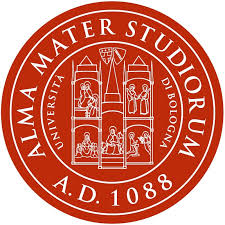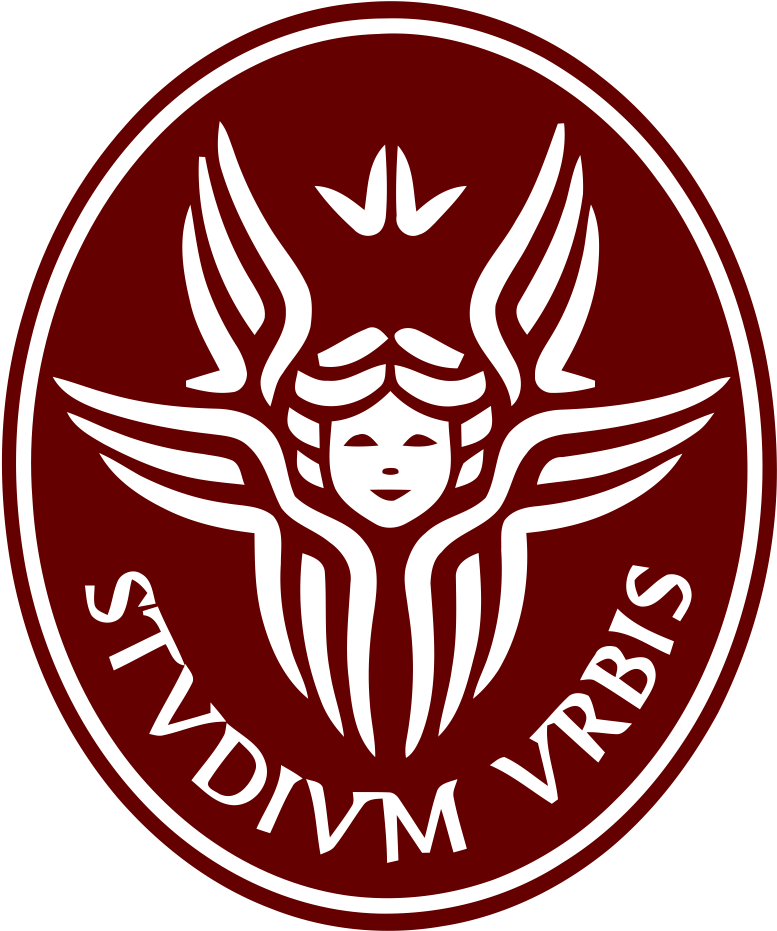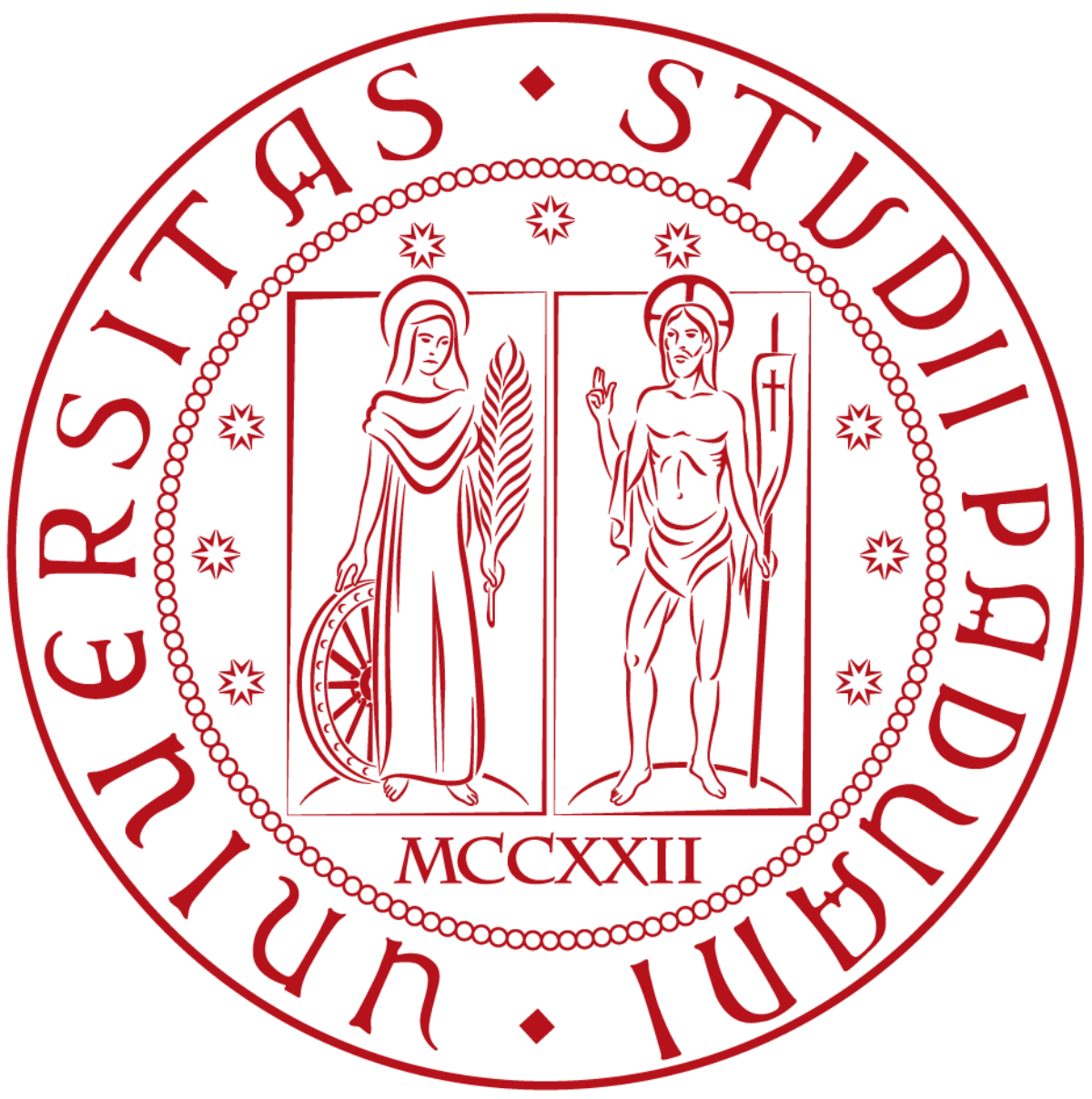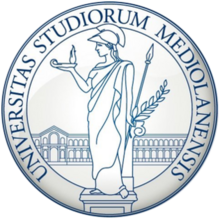Top Universities in ITALY
When deciding which university to study at, it is crucial that you also look at the world university rankings. Study in ITALY offers you access to some of the world’s top institutions.
More About Italy
For instance, Italy is in Southern Europe and is famous for its diversified culture, historical heritage as well as influence worldwide. The country is known for famous iconic landmarks such as the Colosseum, Leaning Tower of Pisa, Vatican City etc. Under the influence of Italy the arts, literature, and philosophy have made great progress, and the names of Leonardo da Vinci, Michel Angelo, and Dante Alighieri sound throughout the ages. The country’s much loved cuisine relying on pasta, pizza and regional specialties is something Italians and the occasional sauce loving Brit are more than familiar with. Fashion is also very strong in Italy, as Milan is one of the world’s fashion capitals.
Documents Required to Study in Italy
- Valid Passport: Your passport must be valid for at least 3 months beyond your intended stay in Italy.
- Letter of Acceptance: An official letter from an accredited Italian educational institution confirming your enrollment.
- Proof of Financial Support: Evidence that you can support yourself financially while studying in Italy (bank statements, scholarship letter, sponsor letter).
- Academic Transcripts and Certificates: Copies of your previous educational qualifications (e.g., high school diploma, undergraduate degree).
- English or Italian Language Proficiency: Proof of proficiency in English or Italian, depending on the language of instruction (e.g., IELTS, TOEFL, CILS, or CELI).
- Health Insurance: Proof of valid health insurance coverage for the duration of your stay in Italy.
- Passport-Sized Photos: Typically two recent passport-sized photographs that meet Italian visa specifications.
- Proof of Accommodation: A document confirming your accommodation arrangements in Italy (e.g., university dormitory, rental agreement).
- Visa Application Form: Completed student visa application form.
- Motivation Letter: A personal statement explaining why you want to study in Italy and your future career goals.
Documents Required for Italy Study Visa
- Valid Passport: Must be valid for at least 3 months beyond the duration of your stay in Italy.
- Completed Visa Application Form: The official student visa application form filled out completely.
- Letter of Acceptance: From a recognized Italian educational institution.
- Proof of Financial Support: Bank statements, scholarship letter, or financial guarantee to prove you can support yourself during your studies.
- Health Insurance: Proof of adequate health insurance coverage during your stay in Italy.
- Passport-Sized Photos: Two recent passport-sized photographs that meet the visa specifications.
- Visa Fee Payment: Payment receipt for the visa application fee.
- Accommodation Proof: Proof of your living arrangements in Italy, whether university dorms or private accommodation.
- Academic Records: Copies of your academic records, such as your high school diploma or university degree.
- Travel Itinerary: Details of your travel dates and flight bookings (if required).
Popular Courses In ITALY
Italy offers a wide range of globally recognized programs in fields like Business, Engineering, Medicine, Fashion Design, Architecture, and Law. Its strong cultural heritage also makes it a top choice for Arts, History, Tourism, and Hospitality studies. Many graduate courses are taught in English, making them accessible to international students.

Scholarships in ITALY
The international students who yearn to study in Italy and need financial assistance can benefit from these scholarships with their tuition fees, living expenses and traveling costs waived. Check the specific eligibility criteria and deadlines as they vary for each scholarship and can be found on the respective official websites.
- Italian Government Scholarships
- Invest Your Talent in Italy
- University-Specific Scholarships
- The Erasmus+ Program
- The Bocconi University Scholarships
- Politecnico di Milano Merit-Based Scholarships
- Padua University Scholarships
- Collegio di Milano Scholarships
Study in ITALY: Additional Tips
Deadlines
Be aware of application deadlines, which can vary significantly between institutions.
Research
Each school may have specific requirements, so always check the school’s website for detailed information.
Interviews
Some programs may require an interview as part of the application process.
If you have a specific school or program in mind, it’s best to check directly with them for the most accurate requirements.
Study in Italy- The Roadmap With Class24
With Class24 studying in the ITALY is a structured step by step process which helps the student in getting application through, understanding visa procedure and selecting best courses for the student. The thorough support provided by this allows the students to make the best decision they can to support their academia in the ITALY.
Highest-Paying Jobs in Italy
Popular jobs in Italy span various industries, reflecting diverse skills and interests. The healthcare industry by-and-large pays the highest salaries in the US, with some roles raking in upwards of $400,000 a year. Positions such as registered nurses and physician assistants, are in high demand, earning up to $150,000 a year. In technology, software developers and data analysts also thrive, earning between $80,000 and $120,000 annually. The education sector sees teachers earning about $50,000 to $65,000, depending on location and experience. Meanwhile, roles in business, like marketing managers and financial analysts, typically pay between $70,000 and $110,000.
Here’s a look at some of the highest-paying jobs in Italy:
| Job Title | Average Base Salary (2024) |
|---|---|
| Anesthesiologist | ~$450,000 |
| Surgeon (Specialist) | ~$400,000 |
| Oral and Maxillofacial Surgeon | ~$400,000 |
| Obstetrician and Gynecologist | ~$350,000 |
| Psychiatrist | ~$250,000 |
| Physician (General Practice) | ~$220,000 |
| Dentist | ~$200,000 |
| IT Manager | ~$150,000 |
| Software Engineering Manager | ~$140,000 |
| Data Scientist | ~$130,000 |

Get Admission into top ITALY universities with the help of expert counsellors
Save up-to ₹3 Lakhs with us!*
Discuss with Expert for FREEBenefits

High Quality Education
Italy is home to renowned universities like the University of Bologna, Sapienza University of Rome, and Politecnico di Milano, known for strong academics and research.

Various Study Programmes
Italian universities offer diverse programs in business, engineering, arts, design, medicine, law, and social sciences, many of which are taught in English at the graduate level.

Opportunities post graduation
International graduates can stay in Italy for up to 12 months after graduation to find work or apply for a work permit.

Cultural diversity
Italy welcomes students from all over the world, fostering a multicultural and inclusive academic environment.

Work
International students can work up to 20 hours per week during the semester and full-time during breaks.

English Language Advantage
Many master's programs are taught in English, helping students improve language skills while studying in a global context.

Research and Innovation
Italy is active in research across fields like engineering, medicine, and cultural studies, with growing EU-funded research collaborations.

Historical and Cultural Experience
Italy’s rich heritage offers access to world-famous art, architecture, and historical landmarks, enhancing the student experience.

Alumni networks are strong
Italian universities have expanding alumni networks that support global career development and industry connections.
Monthly Living Expenses in ITALY
Daily living costs in the United Kingdom vary mostly with region and your lifestyle. Here’s an in-depth look:

Accommodation:
Shared apartments: €300-€500/month Student dormitories: €200-€400/month Private apartments: It costs €500-€1,000/month (depending on the city) to support yourself.

Food and Groceries
Monthly groceries: €150-€250 Dining out: €10-€20/meal

Transportation:
Monthly public transport pass: Costs: €25–€50 (student discounts available) In many cities cycling is a popular and cost effective alternative

Miscellaneous Costs
Internet and utilities: €50-€100/month Entertainment and leisure: €50-€100/month
Low
High
Study Abroad Made Simple
Increase your chances of admission upto70%
The ITALY is one of the country’s booming economies. This is the reason that international students go to the United States.
Request a CallbackKnow Real Stories of Real People, How They Went from India to Abroad!
Get ready to be inspired by the incredible story of students who turned their dreams into reality.
- Free counselling sessions by an educational consultant
- Database of multiple reputed universities under one roof
- Trustworthy and affordable overseas study plans
Document Get Help in Handling All the Legal Papers
The help that one can get with handling legal documents helps to make sure that all of the required paperwork is managed properly and efficiently. From immigration to contracts, whether you need these services for immigration, contracts for academic requirements, professional services can make it easy for you to travel the thorny legal path. Working with these experts, document preparation, submission deadlines and compliance with local laws are brought under control and thus the risk of making errors or delays is reduced. Without understanding legal documents, people need help with legal document assistance, which ultimately reassures them and saves their time while coming up with important transactions.
Study in Ireland: Admission, Top Universities, Popular UG & PG Courses, Fee, Visa Process
Study in Ireland has become a dream for many international students seeking top class education, a vibrant culture and career breakthrough. With a strong educational system and kind schools, Ireland is the country with the highest number of students from India, the USA, China and other foreign countries. This detailed article explains everything you need to know about how to study in Ireland such as study in Ireland cost, entrance exam for study in Ireland, study in Ireland visa process, study in Ireland without IELTS, study in Ireland scholarships, etc. We’ll prepare you well to study in Ireland for international students, the focus is on requirements.
Why Study in Ireland?
Study in Ireland provides a special mixture of excellent education, lively culture and good career opportunities. And here’s why the Ireland itself comes out as the best of study locations:
-
World-Class Education: Trinity College Dublin, University College Dublin (UCD) and University College Cork(UCC) which are world renowned universities are in Ireland and these have great research and teaching/population – 4.3 M (2016), around 8% of population are either Muslim (corrected from Multiculturalism) or Passover.
-
Affordable Tuition Fees: When compared to the USA, UK or Australia, study in Ireland university fees comparatively are affordable with between €9,850 and €55,000 annually for non-EU students.
-
Post-Study Work Opportunities: Ireland's Third Level Graduate Programme enables international students to remain in the country for as long as two years in search of a job.
-
English-Speaking Country: In an English-speaking country Ireland, it is perfect for international students, without language barriers.
-
Safe and Welcoming Environment: Ireland boasts low crime rate; friendly locals therefore a safe destination to study.
-
Global Tech Hub: With firms such as Google, Microsoft and Apple being headquartered in Ireland students have good prospects of landing a job.
-
Vibrant Culture: With historic castles and boisterous festivals Ireland is rich in culture.
Study in Ireland: Top Universities and Colleges
Studyi in Ireland means study at great institutions pursuing various programs. Enlisted below is a table for the best colleges in Ireland for Indian students and international students based on rankings around the world and academic reputation:
Here are the Study in Ireland Top Universities discussed below:
|
University |
QS World Ranking 2025 |
Popular Courses |
|
Trinity College Dublin (TCD) |
87 |
Business, Computer Science, Medicine, Humanities |
|
University College Dublin (UCD) |
171 |
Engineering, Data Science, Agriculture, Business |
|
University College Cork (UCC) |
293 |
Pharmacy, Law, Environmental Science |
|
National University of Ireland, Galway (NUI Galway) |
301-350 |
Marine Science, Biomedical Engineering, Arts |
|
Dublin City University (DCU) |
421-430 |
Communications, Artificial Intelligence, Education |
|
University of Limerick (UL) |
421-430 |
Aeronautics, Sports Science, Business |
|
Royal College of Surgeons in Ireland (RCSI) |
251-300 |
Medicine, Nursing, Pharmacy |
Top colleges in Ireland for Indian students such as TCD, UCD and UCC are especially famous because of intensive academic programs and scholarships. These institutions have a combination of degree and postgraduate courses as well as research programs geared to the global job market.
Study in Ireland for UG Courses
Choosing to pursue UG courses in Ireland is a great option for students who want shorter high caliber programs. The typical 3 year undergraduate degree in Ireland is shorter than the 4 year ones in the USA or Canada thus saving both time and money.
Study in Ireland Popular UG Courses
-
B.Sc. in Computer Science
-
B.A. in Business and Management
-
B.Sc. in Nursing
-
B.Eng. in Mechanical Engineering
-
B.Sc. in Pharmaceutical Sciences
Study in Ireland Admission Requirements for UG Courses
International students who wish to pursue UG courses in Ireland must fulfill the below requirements to pursue international students seeking to study in Ireland.
-
Academic Qualifications: Graduation from high school with 12 th grade (70% or above) for competitive programs like engineering / science (India).
-
English Proficiency: IELTS (6.0–6.5), TOEFL, PTE, or equivalent. A few studies in Ireland may be afforded in absence of IELTS, provided that English was the language of instruction in the previous educational facility.
-
Standardized Tests: The Health Professions Admission Test (HPAT) is required for medicine. Not all other programs need entrance exams.
-
Documents: Academic transcripts, Statement of Purpose (SOPs), Letters of Recommendations (LORs) and valid passport.
Application Process
-
Central Applications Office (CAO): The majority of UG applications are handled by CAO. Open an account and fill academic details, and upload documents.
-
Direct Applications: In a few universities, direct application is through their portals.
-
Deadlines: Primary intake (Autumn intake, September)–deadlines in February–June. Spring intake (January) has bare programs.
Study in Ireland for PG Courses
Study in Ireland PG courses attract students for the fact that the country offers 1-year master’s programs that are shorter and cheaper than in other countries. These degrees are world wide reputable and help in career advancement.
Popular PG Courses
-
M.Sc. in Data Science
-
MBA in International Business
-
M.Eng. in Aeronautical Engineering
-
M.Sc. in Pharmaceutical Sciences
-
M.A. in Peace and Conflict Studies
Admission Requirements for Study in Ireland PG Courses
To study in Ireland for PG courses students need to follow these requirements to study in Ireland as an international student:
-
Academic Qualifications: A relevant bachelor’s degree (i.e., 55%-75% – 2:1 or 2:2 equivalent depending on the program).
-
English Proficiency: IELTS (6.5–7.0), TOEFL, PTE, or equivalent. There is a possibility for study in Ireland without the IELTS with MOI certificate or universities’ specific English tests.
-
Standardized Tests: GRE/GMAT might be required for progressive programs such as MBA into TCD and UCD.
-
Documents: Academic transcripts, SOP, 2 –4 LORs, CV and proof of work experience (in case applicable).
Application Process
-
Apply Directly: PG applications are lodged through university portals.
-
Deadlines: There are usual dead lines of autumn intake, December- April and spring intake, July – October.
-
Interviews: There are some programs that may need online interviews to determine eligibility.
Study in Ireland Cost: Tuition Fees and Living Expenses
Study in Ireland Cost is a vital consideration for international students. Compared to other English speaking nations, Ireland has cheap education but fees will change from program and lifestyle.
Study in Ireland University Fees
Following table shows the average study in Ireland university fees for non-EU/EEA students:
Here is the Study in Ireland University Fees discussed below:
|
Program Type |
Annual Tuition Fees (€) |
Examples |
|
Undergraduate (UG) |
€9,850–€55,000 |
Medicine (€40,000–€55,000), Arts (€9,850) |
|
Postgraduate (PG) |
€9,950–€35,000 |
MBA (€20,000–€35,000), M.Sc. (€9,950) |
|
Diploma Courses |
€8,000–€15,000 |
PG Diploma in Cyber Security (€10,000) |
-
Public Universities: €14,000–€21,000 annually.
-
Private Colleges: €12,000–€14,000 annually.
-
Institutes of Technology: €8,000–€12,000 annually.
Living Expenses
The cost of living in Ireland on average a year may be between €7000 to €12000 depending on the city and the lifestyle one chooses. Below is a breakdown:
Here is the Study in Ireland Living Cost discussed below:
|
Expense |
Monthly Cost (€) |
Annual Cost (€) |
|
Accommodation (Shared) |
€400–€800 |
€4,800–€9,600 |
|
Food |
€200–€300 |
€2,400–€3,600 |
|
Transport (Leap Card) |
€50–€100 |
€600–€1,200 |
|
Miscellaneous |
€100–€200 |
€1,200–€2,400 |
|
Total |
€750–€1,400 |
€9,000–€16,800 |
-
Tips to Save: Use a Leap Card on cheap transport, cook at home and go for shared accommodation.
-
Part-Time Work: International students may work up to 20 hours per week while attending school and 40 hours in holidays while earning between €9.15 per €12 per hour.
Study in Ireland Scholarships
Study in Ireland scholarships increase the availability of education to international students. In turn, the Irish government and universities provide funds to make study in Ireland cheap. Below are some notable scholarships:
Here are the Top Study in Ireland Scholarships discussed below:
|
Scholarship |
Eligibility |
Benefits |
Source |
|
Government of Ireland International Education Scholarship |
Non-EU/EEA students, academic excellence |
Full tuition waiver, €10,000 stipend |
|
|
UCD Global Excellence Scholarship |
Non-EU/EEA students, merit-based |
50%–100% tuition fee waiver |
|
|
TCD Global Excellence Postgraduate Scholarship |
International students, academic merit |
Up to €5,000 tuition fee reduction |
|
|
K.C. Mahindra Scholarship |
Indian students, postgraduate studies |
Partial funding for tuition and living costs |
|
|
SFI Fellowship Programme |
STEM students, research-based |
Stipend, research costs, tuition fees |
How to Apply for Scholarships
-
Research Early: Search for eligibility and dates at university and government websites.
-
Prepare Documents: Submit academic transcript, SOP, LORs and English proficiency proof.
-
Apply Separately: Scholarships most often require a separate application in addition to the university one.
With Study in Ireland Scholarships, Higher studies in Ireland are very useful to relieve financial trouble and thus, Ireland is a good option.
Study in Ireland Visa Process
Study in Ireland visa process is simple, yet demanding. International students outside the EU/EEA need an Ireland student visa (Stamp 2) to attend school in Ireland. Step by step, Ireland visa application procedure for students, and conditions for a student visa are as follows:
Ireland Student Visa Requirements
-
Letter of Acceptance: From an accredited Irish institution from the Interim List of Eligible Programmes (ILEP).
-
Proof of Funds: €10,000 for the first year and €10,000 on top of tuition fees for every single following year. Sponsors’ bank statements are acceptable.
-
English Proficiency: IELTS, TOEFL, PTE, or equivalent. Universities in Ireland allow study without IELTS if the university waives the requirement.
-
Medical Insurance: Private medical insurance is mandatory.
-
Valid Passport: And minimum validity of 6 months past the intended stay.
-
Visa Fee: €300 (approximately ₹22,000).
-
Additional Documents: Academic transcripts, SOP and no criminal record.
Visa Application Process
-
Apply Online: Complete the application on the Online Of Irish Immigration Service form.
-
Submit Documents: Upload necessary documents and apply strictly following the summary application form guidelines.
-
Pay the Fee: Make a payment of €300 through bank transfers or online payment.
-
Schedule an Appointment: Go to Irish Embassy / Visa Application Centre ( e.g ., VFS Global in India ) .
-
Attend Interview: Interviews may be arranged for some applicants.
-
Processing Time: Visa processing takes 4-8 weeks, apply 3 months before your departure date.
Key Tips
-
Make sure your course appears on the ILEP to avoid visa rejection.
-
Leave funds in your account for a minimum period of 3 months preceding applications.
-
Verify authenticity of the document in order to prevent delays.
Study in Ireland Without IELTS
Study in Ireland without IELTS is the game-changer for those students that find the IELTS exam difficult. Ireland is opened up to more students as many Irish universities present alternatives to verify one’s English proficiency.
Alternatives to IELTS
-
Medium of Instruction (MOI) Certificate: If your last education was in English, issue an official certificate from your place of study.
-
TOEFL or PTE: Enrolled by most universities (for example, TCD, UCD).
-
Duolingo English Test: More and more universities will now accept Duolingo scores.
-
University-Specific Tests: There are universities who will carry out their own English proficiency test or interview.
-
Pre-Sessional English Courses: Sign up for English through the university for language requirements.
Universities Offering Study in Ireland Without IELTS
-
University College Dublin (UCD)
-
Trinity College Dublin (TCD)
-
National University of Ireland, Galway (NUI Galway)
-
University College Cork (UCC)
-
Griffith College
How to Apply Without IELTS
-
Research Universities: List institutions which accept alternative English proficiency proof.
-
Contact Admissions Office: Verify certain requirements for your program.
-
Submit Alternatives: Present certificates of MOI, TOEFL/PTE, or enroll into pre-sessional courses.
-
Visa Considerations: Have on your visa application letter the acceptance letter from the university which states no IELTS is required.
Study in Ireland without IELTS can lead to doors opening for students from non-English speaking countries, all other admission criteria enlarged.
Entrance Exam for Study in Ireland
Entrance examination requirements for study in Ireland differ from one program to another, and from one university to the other. Although most courses do not require standardized tests, competitive programs may have particular exams.
Common Entrance Exams
-
HPAT: Needed for undergraduate medicine programs to evaluate entry aptitude to health professions.
-
GAMSAT: Mandatory for graduate-entry medicine programs.
-
GRE/GMAT: Used by some postgraduate courses especially MBA in TCD or UCD.
-
English Proficiency Tests: IELTS (6.0-7.0), TOEFL or PTE, for non-native speakers, unless waived.
Programs Without Entrance Exams
Most of the arts, humanities, business, and technology UG and PG studies don’t require entrance papers, a focus on academic proportions, and English proficiency.
Preparation Tips
-
Start Early: Start studying for the exams as HPAT or GAMSAT 6-12 months prior.
-
Use Official Resources: Access practice tests and study guides from the official site.
-
Consider Coaching: Sign up to do test preps on GRE/GMAT if necessary.
Study in Ireland for Free: Is It Possible?
Study for free in Ireland is difficult but doable with a fully funded scholarship and financial aid. Even among the high tuition fee and living costs, planning strategically cut expenses.
Options to Study in Ireland for Free
-
Government Scholarships: The scholarship provided by the Government of Ireland International Education allows students to receive full tuition waivers and a €10000 stipend.
-
University Scholarships: UCD, TCD and UCC have merit based scholarships for 50%-100% of tuition fees.
-
Part-Time Work: Part-time jobs either for €9.15–€12 per hour can cover the living costs.
-
Free Fees Initiative: EU/EEA students may be eligible for free undergraduate tuition while non–EU students’ international fees apply.
Tips to Maximize Funding
-
Scholarships have a lot to offer, so apply for many.
-
Consider looking into education loans of low interest rate (K.C. Mahindra Scholarship for Indian students).
-
Partition according to pocket by opting for inexpensive lodgings and saving as much as you can.
Requirements to Study in Ireland for International Students
Requirements to study in Ireland for international students makes it possible to plan for the expenses and be academically ready to study in Ireland. Below is a comprehensive checklist:
Academic Requirements
-
UG Programs: Good knowledge of 12th-grade(corresponding to O’ level) and 70% or above to join competitive courses.
-
PG Programs: Bachelor’s degree with 55%–75%, depending upon the program.
-
Diploma Courses: Major fields courses only for an undergraduate degree or prior work experience – PG diploma.
English Proficiency
-
IELTS (6.0 -- 7.0), TOEFL, PTE, MOI certificates, or any others as university tests.
Financial Requirements
-
Evidence of €10,000 for fee and living costs, first year tuition.
-
Additional €10,000 for each subsequent year.
Documents
-
Academic transcripts
-
2—4 SOP and LORs depending on the program
-
Valid passport
-
Proof of English proficiency
-
Bank statements or loan sanction letters (financial documents).
Other Requirements
-
No Criminal Record: Required for visa applications.
-
Medical Insurance: Mandatory for all international students.
How to Study in Ireland, Step-by-Step Guide
How to Study in Ireland, careful planning is required followed by careful execution. Go by these steps to make the application process easy, Adhere to these steps to make the application process easy:
-
Research Programs and Universities: Filter institutions using courses, fees, and scholarship. Utilise university sites and sites of education consultants.
-
Check Eligibility: Check requirements on academic and English proficiency.
-
Prepare for Exams: Get in IELTS/TOEFL or any of the entrance tests (HPAT/GAMSAT) if necessary.
-
Gather Documents: Compile transcripts, SOP, LOR’s & financial proofs.
-
Apply to Universities: Apply for CAO (UG) / University portals (PG).
-
Apply for Scholarships: If you are eligible, file separate scholarship applications.
-
Pay Tuition Fees: Pay fees after receiving an acceptance letter to make sure of your place.
-
Apply for Visa: Finish up the study in Ireland visa program via the Irish Immigration Service.
-
Arrange Accommodation: Book university halls or rentals in advance.
-
Travel to Ireland: Be there ahead of the academic term for orientation and setting up in your room.
Conclusion
Study in Ireland provides you with a world class education, opportunities to immerse yourself into the rich culture and begin a world career. Worldwide students can access Ireland with affordable study in Ireland university fees, generous study in Ireland scholarships and flexible options such as study in Ireland without IELTS. Whether you are looking to study in Ireland for UG Courses, study in Ireland for PG Courses or for higher studies in Ireland including scholarship this guide provides all the necessary information to help you to make well informed decisions. Begin your journey today by doing some research of universities, going through documents preparation and scholarship application in order your dream of studying in Ireland becomes a reality.
Frequently Asked Questions

Cast Your Eyes Upon Our Newest Article

Student Visa for Dubai 2026: Application Process, Eligibility, Cost, Work Rights & Latest Rules
Dubai has been quick to become a global education destination of choice for international students. Offering internationally recognised universities, industry-focused courses, innovative facilit...
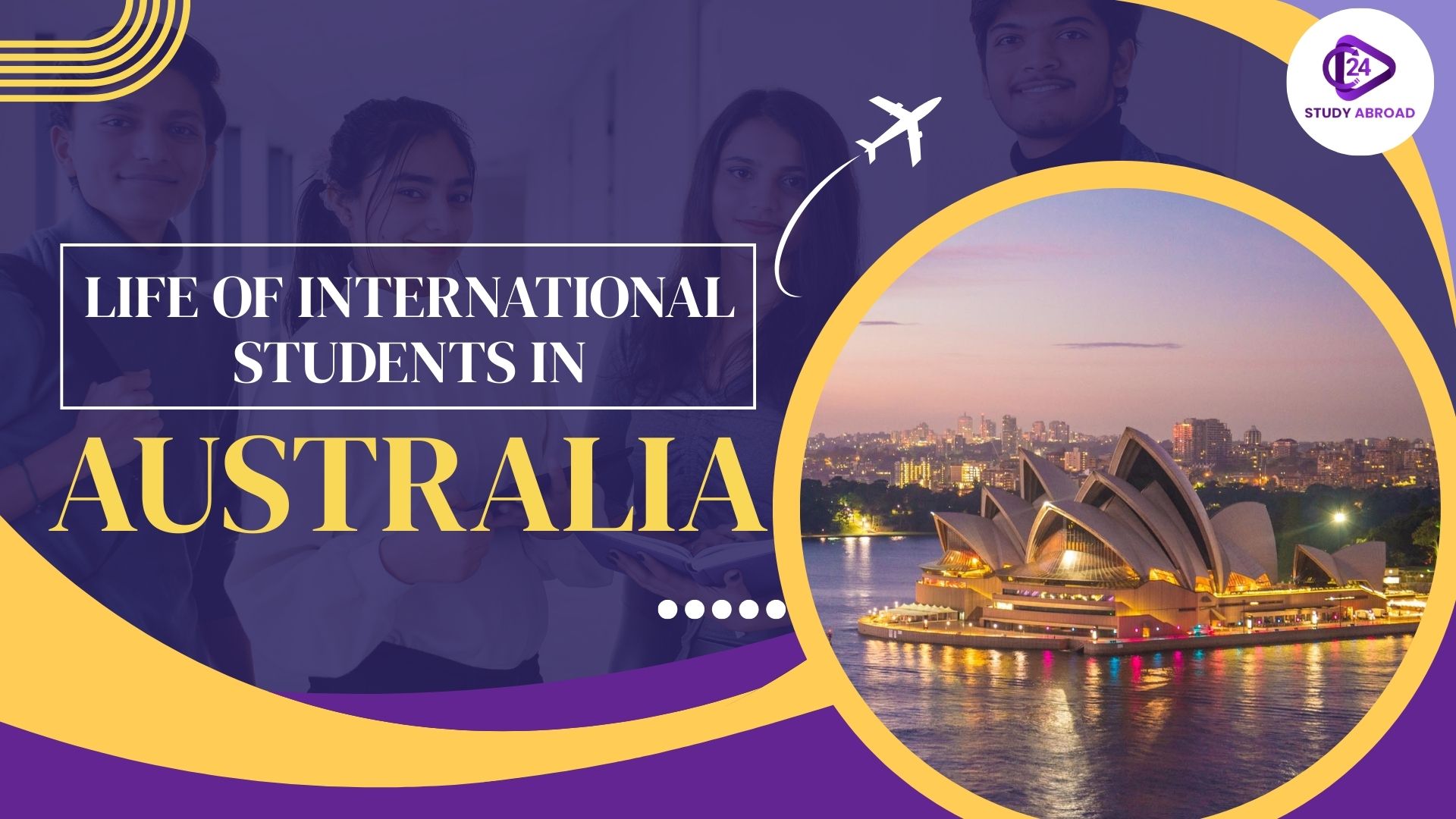
Life of International Students in Australia: Cost of Living, Climate, Culture, Housing & Safety
Australia has emerged as one of the most desirable places of study to international students. Australia is a preferred location with world-class universities, globally recognised degrees, part-t...
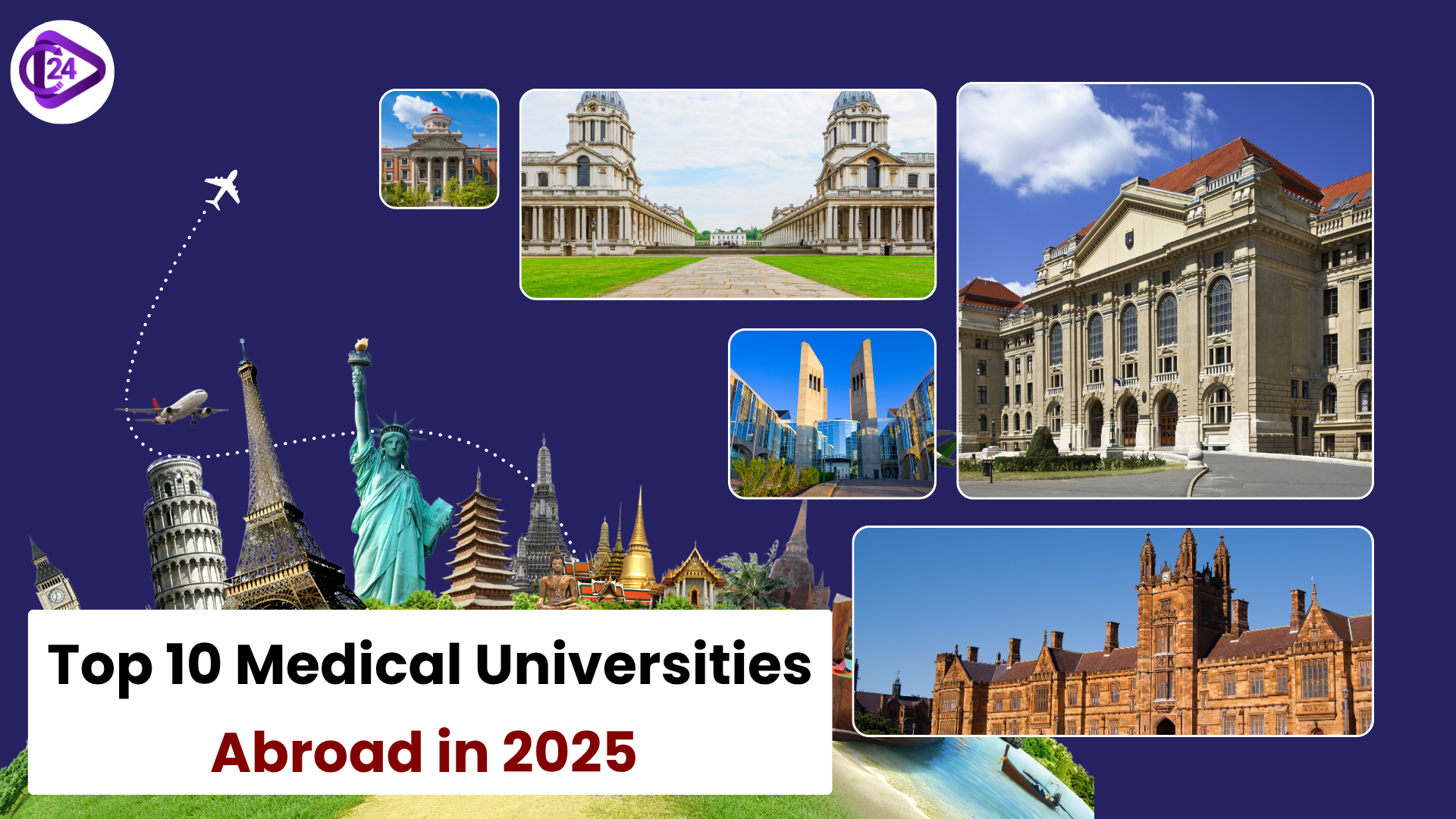
Top 10 Medical Universities Abroad in 2025
In order to study medicine at a foreign university, it is possible to access high-quality training, advanced research, and a career at the international level. With the increasing needs of skill...


